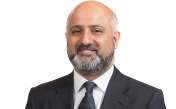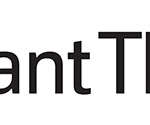Partners in King & Spalding’s London disputes team discuss their thoughts on some of the current trends and issues within the litigation and international arbitration markets
The disputes market
How has the disputes market changed in the last 20 years?
 ‘It has changed immeasurably on so many levels. London has always been a centre for international parties looking to a robust and reliable system for the resolution of their disputes, but the last 20 years has seen this writ large – as the global marketplace becomes ever more interconnected, London has continued to be at its centre for disputes, and the London courts and London-seated arbitration processes have continued to evolve and proactively adapt to the demands of the world’s largest corporations that use them.
‘It has changed immeasurably on so many levels. London has always been a centre for international parties looking to a robust and reliable system for the resolution of their disputes, but the last 20 years has seen this writ large – as the global marketplace becomes ever more interconnected, London has continued to be at its centre for disputes, and the London courts and London-seated arbitration processes have continued to evolve and proactively adapt to the demands of the world’s largest corporations that use them.
Technology has obviously become increasingly central to the operation of global businesses, so too the advance of technology in managing disputes has evolved. Law firms looking to innovate through technology can drive efficiency and costs savings in the day-to-day administration and logistics of litigation, freeing up partners and associates to focus on the strategic presentation of every case.
Another market-changing development is the growth of litigation funding. Either for claimants who have the merits but not the funds, or for organisations wishing to share risk and not tie up their own balance sheet resources, litigation funding has changed the complexion of the disputes market forever. Law firms not embracing this change will eventually find themselves a long way behind the game line.’
Sarah Walker
What are some of the challenges in IA at the moment?
 ‘I think that there are some major challenges to overcome in relation to investment treaty arbitration. It is all very well and good entering into international arbitration but, from the investors’ perspective, the states on the other side of proceedings are able to drag things out for a very long time, especially once an award has been secured and enforcement proceedings are underway. There is a lot of behind-the-scenes pressure while there is only a small selection of arbitrators who can be appointed. It can be pretty obvious if the arbitrator is either pro-state or pro-investor.’
‘I think that there are some major challenges to overcome in relation to investment treaty arbitration. It is all very well and good entering into international arbitration but, from the investors’ perspective, the states on the other side of proceedings are able to drag things out for a very long time, especially once an award has been secured and enforcement proceedings are underway. There is a lot of behind-the-scenes pressure while there is only a small selection of arbitrators who can be appointed. It can be pretty obvious if the arbitrator is either pro-state or pro-investor.’
Egishe Dzhazoyan
What are the main differences between sitting as an arbitrator and a judge in traditional litigation?
 ‘The arbitration process gives greater flexibility to the arbitral tribunal than traditional litigation gives to the judge. For example, procedural steps can be tailored and sitting hours can be varied to meet the circumstances of the particular case. The almost invariable availability in arbitration proceedings of LiveNote and daily transcripts is a big plus when preparing an award as opposed to writing a judgment. The absence of court formality is a positive factor in terms of getting work done, not least the opportunity for a caffeine fix mid-morning and mid-afternoon.’
‘The arbitration process gives greater flexibility to the arbitral tribunal than traditional litigation gives to the judge. For example, procedural steps can be tailored and sitting hours can be varied to meet the circumstances of the particular case. The almost invariable availability in arbitration proceedings of LiveNote and daily transcripts is a big plus when preparing an award as opposed to writing a judgment. The absence of court formality is a positive factor in terms of getting work done, not least the opportunity for a caffeine fix mid-morning and mid-afternoon.’
Stuart Isaacs QC
What advice do you have on being a good advocate?
 ‘For me advocacy is one of those skills where the only true way to learn and improve is by deeply engaging in it as much as you possibly can. There is no real way to “train” for it, doing the real thing regularly is the only way. My first mentor was a strong believer in this and forced every young lawyer he worked with to spend a year in the rough and tumble of a high-volume personal injury and employment cases that would often involve several hearings a week on different cases before a wide range of judges and arbitrators. That experience highlighted for me the challenges but also the beauty of advocacy. At any moment you are balancing your duties to the court or tribunal, the underlying facts, the applicable law, the underlying equities and the interests of your client, which often include a large financial and emotional investment. All of those factors may need to be brought to bear on a clever question thrown at you by a judge or arbitrator on the fly with around a nanosecond to answer. That is exhilarating, but not for the faint-hearted and is why advocates need to work incredibly hard pre-hearing to ensure that they have a grip on all those factors. That in essence is the humble advice I would offer: work very hard, do as much as possible and always keep learning.’
‘For me advocacy is one of those skills where the only true way to learn and improve is by deeply engaging in it as much as you possibly can. There is no real way to “train” for it, doing the real thing regularly is the only way. My first mentor was a strong believer in this and forced every young lawyer he worked with to spend a year in the rough and tumble of a high-volume personal injury and employment cases that would often involve several hearings a week on different cases before a wide range of judges and arbitrators. That experience highlighted for me the challenges but also the beauty of advocacy. At any moment you are balancing your duties to the court or tribunal, the underlying facts, the applicable law, the underlying equities and the interests of your client, which often include a large financial and emotional investment. All of those factors may need to be brought to bear on a clever question thrown at you by a judge or arbitrator on the fly with around a nanosecond to answer. That is exhilarating, but not for the faint-hearted and is why advocates need to work incredibly hard pre-hearing to ensure that they have a grip on all those factors. That in essence is the humble advice I would offer: work very hard, do as much as possible and always keep learning.’
Tom Sprange QC
How important is diversity in the legal profession?
 ‘The limited availability of diverse representation for diverse clients with disputes in diverse regions is a critical issue with which we continue to grapple as a profession. A lack of diversity, both as to the options for legal counsel and decision-makers (arbitrators, judges and other neutrals), risks undermining the legitimacy of the international dispute resolution mechanisms on which the international business community relies to resolve conflicts. That being said, great strides have been made by institutions such as the LCIA and ICC in appointing a more diverse range of candidates as arbitrator and there are signs of improvement in the judiciary in this jurisdiction too, with a majority female panel of the Supreme Court hearing a case for the first time last year. In my experience at least, there is also great diversity at every level of seniority of in-house counsel at many leading companies. In our firm and many others like it we see fantastic young and diverse lawyers joining the profession every year. We can and must do more to make
‘The limited availability of diverse representation for diverse clients with disputes in diverse regions is a critical issue with which we continue to grapple as a profession. A lack of diversity, both as to the options for legal counsel and decision-makers (arbitrators, judges and other neutrals), risks undermining the legitimacy of the international dispute resolution mechanisms on which the international business community relies to resolve conflicts. That being said, great strides have been made by institutions such as the LCIA and ICC in appointing a more diverse range of candidates as arbitrator and there are signs of improvement in the judiciary in this jurisdiction too, with a majority female panel of the Supreme Court hearing a case for the first time last year. In my experience at least, there is also great diversity at every level of seniority of in-house counsel at many leading companies. In our firm and many others like it we see fantastic young and diverse lawyers joining the profession every year. We can and must do more to make
sure that that diversity is represented at the senior levels in private practice.’
Ruth Byrne
What things can be done to improve diversity and inclusion?
‘Recruiting, inspiring and retaining the next generation of lawyers is one of the key challenges for law firms in 2019. The last 20 years has certainly seen a sea change in diversity and inclusion within the sector, as law firms increasingly recognise that a more diverse team means a difference in viewpoints and approach, which is directly beneficial to clients. This begins at the very start of the process and the candidates you choose to interview. 20 years ago, they would all have come from the same university or social or educational demographic. Having recruited for a diverse team, inspiring and retaining them is the next challenge for those leading law firms. While there is no single magic formula, a major component of retaining talented lawyers is investment in them as individuals. This is not merely financial investment, but investment by way of time and personal commitment. Firms need to focus on diversity of opportunity – nurturing and mentoring lawyers, with support, role models and aspirations so that individuals can develop and fulfil their potential, no matter what their background or characteristics. Role models are key – if the next generation can see it, and believe it, they can more easily achieve it.’
Sarah Walker
What are some techniques for managing arbitration costs?
 ‘With international arbitration being used more frequently to resolve increasingly legally complex, technical and time-consuming cases, ie, in so-called “bet the company” and “bet the country” cases, the cost of an arbitration can be substantial. But that cost can be reduced by the efficient management of the arbitral process by experienced arbitration lawyers, arbitrators and institutions. Techniques designed to promote economy of cost (and efficiency overall) include: emergency or expedited procedures; seeking agreement on certain essential matters (eg number of written submission rounds, modalities of document production, ground rules for fact and expert witness examination) at the outset of the proceedings through a well-planned case management conference and/or the exchange of a detailed draft of a first procedural order; staged allocation of costs and/or interim costs orders to dissuade disruptive (and other guerrilla) tactics; and incentivising arbitrators to render awards expeditiously by lowering or increasing their fees. Put simply, even though, by its nature, international arbitration can be expensive, parties, tribunals and institutions have numerous techniques and tools at their disposal with which they can (and should) manage its costs.’
‘With international arbitration being used more frequently to resolve increasingly legally complex, technical and time-consuming cases, ie, in so-called “bet the company” and “bet the country” cases, the cost of an arbitration can be substantial. But that cost can be reduced by the efficient management of the arbitral process by experienced arbitration lawyers, arbitrators and institutions. Techniques designed to promote economy of cost (and efficiency overall) include: emergency or expedited procedures; seeking agreement on certain essential matters (eg number of written submission rounds, modalities of document production, ground rules for fact and expert witness examination) at the outset of the proceedings through a well-planned case management conference and/or the exchange of a detailed draft of a first procedural order; staged allocation of costs and/or interim costs orders to dissuade disruptive (and other guerrilla) tactics; and incentivising arbitrators to render awards expeditiously by lowering or increasing their fees. Put simply, even though, by its nature, international arbitration can be expensive, parties, tribunals and institutions have numerous techniques and tools at their disposal with which they can (and should) manage its costs.’
Giorgio Francesco Mandelli
Cases
What types of disputes are you seeing coming to London?
‘London remains one of the centres for global disputes and, while the market for arbitration courts is getting more competitive, certain types of investors and certain types of cases still prefer certain seats. I work a great deal with clients and cases involving Russia and the former CIS and they still have London as the prime destination ahead of places such
as Singapore.’
Egishe Dzhazoyan
What areas are seeing the most disputes?
‘Energy remains our most active industry focus in terms of the disputes we are handling. We are also very busy with disputes regarding large engineering and construction projects, finance arrangements, life sciences contracts, the telecoms industry and wider commercial concerns such as fraud and corruption. Looking forward, I expect that the volume of disputes regarding traditional hydrocarbon energy sources will reduce somewhat over time and be replaced by growing numbers of disputes in the renewables space. Looking further into the future, our most significant disputes may well be about water and data.’
Ruth Byrne
What are the worst things that counsel can do when in arbitration?
‘Irritating the tribunal by advancing every point, good or bad, with equal force; failing to pick up on indications from the tribunal; grandstanding for the benefit of the party whom counsel represents; displaying discourtesy, gratuitous or otherwise, to opposing counsel and still more so to the tribunal.’
Stuart Isaacs QC
What are some of the factors that investors take into account when evaluating a foreign investment opportunity?
‘Traditionally, when evaluating foreign investment opportunities, a range of critical factors come into play, from the initial capital outlay necessary for the investment, to the regulatory environment (eg the applicable fiscal regime) and the perceived risks (political and/or expropriatory) of investing in a particular host state, to the expected (for some investors, the necessary) rate of return on the investment. More recently, sophisticated investors increasingly look to the substantive protections afforded by bilateral and multilateral investment treaties, including their dispute settlement provisions, and to the possibility of structuring (or restructuring) their investments to hedge their ability to call upon the most beneficial protections. The natural corollary of the need to protect an investment is the ability to bring (and fund) a claim at the appropriate time. In that context, the continued development of third-party funding constitutes an important, if sometimes overlooked, puzzle piece of an investment decision. And not only for the ever-growing number of single asset companies operating in the investor-state space, but also for asset-rich companies lacking the liquidity to fund the ongoing costs of an investor-state arbitration or for companies that simply prefer to manage risk creatively and to free up their cash flow.’
Giorgio Francesco Mandelli
You recently won the at the Legal Business Awards 2019. Can you give some more details?
 ‘King & Spalding’s London arbitration team with local counsel, AS Dayal & Associates, led the representation of India’s largest private sector company, Reliance Industries Ltd (RIL), in a UNCITRAL case relating to a precedent setting, $1.7bn claim made by the Government of India (GOI) against RIL and its consortium partners. The arbitration concerned the extraction and sale of gas by RIL that had allegedly migrated into its offshore KG-DWN-98/3 Block in the Bay of Bengal from two adjacent blocks, operated by the Indian state-owned Oil and National Gas Corporation. In short the GOI argued that RIL was restricted to producing only that quantity of gas in its KG-DWN-98/3 Block as existed at the time of signing the production-sharing contract (PSC), and was not permitted to produce gas that migrated, by way of natural consequences, across the block boundary. We successfully argued PSC ought to be interpreted to permit the production of migrated gas, that RIL had complied with the PSC terms and that in any event, the GOI’s approach was technically flawed on the basis of extensive expert evidence.’
‘King & Spalding’s London arbitration team with local counsel, AS Dayal & Associates, led the representation of India’s largest private sector company, Reliance Industries Ltd (RIL), in a UNCITRAL case relating to a precedent setting, $1.7bn claim made by the Government of India (GOI) against RIL and its consortium partners. The arbitration concerned the extraction and sale of gas by RIL that had allegedly migrated into its offshore KG-DWN-98/3 Block in the Bay of Bengal from two adjacent blocks, operated by the Indian state-owned Oil and National Gas Corporation. In short the GOI argued that RIL was restricted to producing only that quantity of gas in its KG-DWN-98/3 Block as existed at the time of signing the production-sharing contract (PSC), and was not permitted to produce gas that migrated, by way of natural consequences, across the block boundary. We successfully argued PSC ought to be interpreted to permit the production of migrated gas, that RIL had complied with the PSC terms and that in any event, the GOI’s approach was technically flawed on the basis of extensive expert evidence.’
Sajid Ahmed
Why was the case significant?
‘The migration of cases across block boundaries is a controversial issue in the oil and gas industry that has not been fully adjudicated by an international tribunal or court in the modern era of oil and gas exploration. The outcome of this dispute was therefore of seismic importance for the oil and gas industry. The case was the first major international arbitration to be governed by India’s Arbitration and Conciliation Act as amended in 2015 and one of the largest Indian arbitrations to date. The K&S London team leading the matter comprised myself and Sajid Ahmed, Darshna Patel, Andrea Stauber and Charity Kirby with support provided from New York counsel Thomas Childs and Charlene Sun and partners Craig Miles and Reggie Smith in Houston. We were also very lucky to work closely throughout with a superb group of Indian lawyers including Atul Dayal, who led from AS Dayal & Associates, Harish Salve SA and his team, along with the RIL in-house team, Tundra Guha and Abhishek Dimiril.’
Tom Sprange QC
***
King & Spalding’s London trial and global disputes team
Integrated approach
King & Spalding’s London trial and global disputes practice provides clients with cohesive and comprehensive legal counsel in all their major disputes. The firm meticulously reviews the case, conceives the arguments – and counterarguments – and plans for all the preferred and potential outcomes.
Strong advocates
Our London team is also distinct in that we offer integrated advisory and advocacy services so clients can be assured that the lawyers working with you will be there every step of the way.
Our disputes lawyers are diverse and highly dynamic in their range of experience. They are acknowledged for their skills in both launching and defending high-end disputes, covering advisory, court filings, case management and document disclosure. A great many of the team are also qualified to represent clients directly in court, which includes the unique ability to offer in-house expertise from four Queen’s Counsel as well as fully admitted solicitor-advocates and qualified barristers.
International and industrial expertise
The team has a strong background in both UK domestic and international cross-border disputes, especially in international arbitration. We have handled cases from all over the world – including the Americas, Europe, Africa, the Middle East and Asia. Often working with colleagues in our global network, we understand the importance of successfully managing complex multi-jurisdictional cases.
Our lawyers regularly advise and advocate in the English High Court, the ICC, LCIA, SIAC and the SCC.
The team is also known for its representation in key industries and specialities, such as oil and gas, financial services, fraud, sanctions and investor-state disputes. Our disputes lawyers work in close collaboration with our transactional and investigations experts.
Sajid Ahmed, Ruth MD Byrne, Egishe Dzhazoyan, Stuart L Isaacs QC, Giorgio Mandelli, Thomas K Sprange QC, Sarah Y Walker, King & Spalding.














